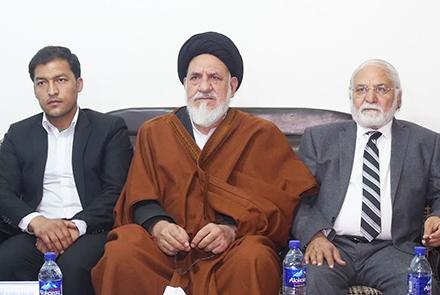Sadat tribal elders on Sunday called on President Ashraf Ghani to issue an order to determine the inclusion of names of all ethnic groups in the country into the Electronic National Identity Card (e-NIC) database.
Sadat tribal elders last week refused to apply for the new Electronic National Identity Card (e-NIC) and said they would boycott the system until government addresses their concerns about the exclusion of some ethnicities, including Sadats, into the e-NIC database.
Representatives from these ethnicities warned they would stage civil protests if they were not included in the new system.
Meanwhile, officials from e-NIC have said that the process of e-NIC registrations has been halted temporarily ahead of the Kabul Process meeting scheduled to be held this week.
According to Sadat tribal elders, Sadat ethnicity was included even when Afghanistan first issued ID cards to its nationals. They said government does not have the authority to scrap it.
“We reiterate calls to the honorable president to issue an order and determine the name of ethnicities including Sadat, Bayat, Khalili, Qarluq and other ethnicities whose representatives are present here at this meeting,” said Sayed Mohammad Ali Jawed, chairman of the commission seeking ethnic identity.
Currently only 14 ethnicities are listed in Afghanistan’s Constitution – upon which the e-NIC system is based.
The tribal elders meanwhile said from a legal perspective, there are no restrictions in terms of including all names of ethnicities in e-NIC.
“Every ethnicity including Sadat and Bayat and the rest of the ethnicities, their identity is important for them like their life, we are identified through our ethnicity, ” said Abdul Qahar Hakimi, representative of Qarloq ethnic group.
“If they are bringing the ethnicities towards confrontations, this will harm the security of the ethnicities and will push the country towards a crisis,” said Haidari, deputy head of Bayat ethnic group.
Thirty one ethnicities have been registered at the Ministry of Borders and Tribal Affairs (MoBTA).
Based on a presidential decree, the new identity cards will contain the nationality and ethnicity of each person. However, these two controversial words had been omitted from the cards in the law previously ratified in 2015.
Despite listing only 14 ethnicities, the Constitution states in Article 6 that the state is responsible for ensuring equality among all people and tribes and balance development of all areas of the country.
“The state shall be obligated to create a prosperous and progressive society based on social justice, preservation of human dignity, protection of human rights, realization of democracy, attainment of national unity as well as equality between all peoples and tribes and balance development of all areas of the country.”

